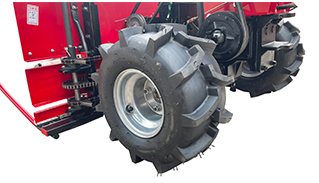8 月 . 13, 2024 12:37 Back to list
Understanding the Importance of Brake Drum Bolts in Vehicle Safety and Performance Maintenance
Understanding Brake Drum Bolts Importance and Maintenance
Brake drums play a crucial role in the braking systems of various vehicles, particularly older models and certain heavy-duty applications. Integral to the functionality and safety of these systems are the brake drum bolts, which hold the drum securely in place, ensuring optimal performance. This article explores the significance of brake drum bolts, their functions, and tips for proper maintenance.
The Role of Brake Drum Bolts
Brake drum bolts are hardware components that secure the brake drum to the wheel hub. They are designed to withstand high levels of stress and torque that occur during braking. When a driver applies the brakes, the brake shoes within the drum expand and make contact with the inner surface of the drum, creating friction that slows down and eventually stops the vehicle. Proper installation of the brake drum bolts is essential for ensuring that the drum remains firmly attached and functions effectively.
Additionally, brake drum bolts are typically made of high-strength materials, often coated to resist corrosion. This durability is necessary since brake systems are exposed to extreme conditions, including heat generated during braking and exposure to moisture and road salt. Without robust bolts, the integrity of the braking system could be compromised, leading to potential failure and unsafe driving conditions.
Signs of Wear and Tear
brake drum bolt

Over time, brake drum bolts can experience wear and tear, which may lead to several issues. Common symptoms of degraded bolts include unusual noises while braking, vibrations, or a noticeable decrease in braking efficiency. If a driver notices any of these signs, it is crucial to inspect the brake system promptly. Loose or damaged bolts can exacerbate braking problems, leading to a dangerous escalation in wear on other brake components.
Maintenance and Replacement
To ensure the reliability of brake drum bolts, regular maintenance is essential. During routine vehicle inspections, it is advisable to check the condition of the brake drum bolts, looking for signs of rust, wear, or deformation. Additionally, most manufacturers recommend re-torquing the bolts after the initial installation. This process helps to ensure that they remain secure and perform effectively, especially after mechanical work has been completed.
If a brake drum bolt appears damaged, it is imperative to replace it immediately. Replacing a single bolt may seem trivial; however, all bolts should generally be replaced as a set to ensure uniform performance and safety. When replacing the bolts, it is often recommended to use bolts that meet or exceed the original specifications to guarantee compatibility and durability.
Conclusion
In summary, brake drum bolts are essential components of a vehicle's braking system. Their primary function is to secure the brake drum and ensure effective braking performance. Regular maintenance, including inspections and timely replacements, can prevent severe issues and enhance safety on the road. Drivers should remain vigilant about the health of their vehicle’s braking system, as faulty brake drum bolts can lead to hazardous situations. By prioritizing proper maintenance and addressing any concerns promptly, one can ensure a safe and reliable braking experience.
-
Brake Drum for Kamaz Trucks Durable OEM Replacement & High Performance
NewsMay.30,2025
-
Brake Drum Man High-Quality Drum Brake & Shoe Solutions
NewsMay.30,2025
-
High-Performance Brake Drum for Kamaz Trucks Durable Drum Brake Components
NewsMay.29,2025
-
Brake Drum Man High-Quality Drum Brake Drums & Brake Shoes
NewsMay.29,2025
-
Brake Drum MAZ High-Performance & Durable Replacement Parts
NewsMay.29,2025
-
heavy truck brake drums
NewsMar.07,2025
